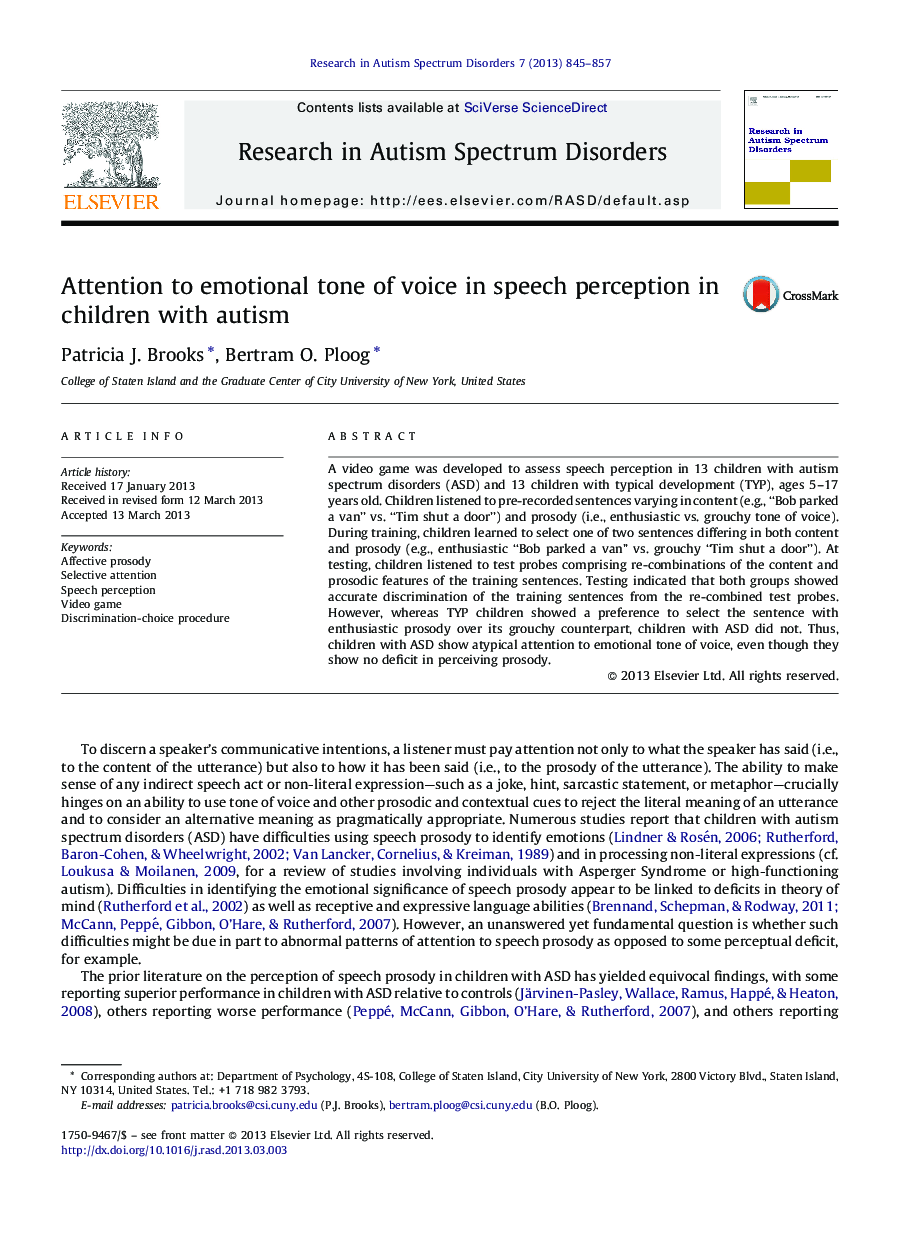| Article ID | Journal | Published Year | Pages | File Type |
|---|---|---|---|---|
| 370390 | Research in Autism Spectrum Disorders | 2013 | 13 Pages |
•A discrimination-choice procedure in a video game assessed speech perception in ASD.•Children with ASD accurately discriminated content and prosody of sentences.•They were less influenced than TYP peers by the emotional valence of sentences.•Results suggest atypical attention to speech prosody in children with ASD.•A deficit in the prioritization of attention to task-relevant features is proposed.
A video game was developed to assess speech perception in 13 children with autism spectrum disorders (ASD) and 13 children with typical development (TYP), ages 5–17 years old. Children listened to pre-recorded sentences varying in content (e.g., “Bob parked a van” vs. “Tim shut a door”) and prosody (i.e., enthusiastic vs. grouchy tone of voice). During training, children learned to select one of two sentences differing in both content and prosody (e.g., enthusiastic “Bob parked a van” vs. grouchy “Tim shut a door”). At testing, children listened to test probes comprising re-combinations of the content and prosodic features of the training sentences. Testing indicated that both groups showed accurate discrimination of the training sentences from the re-combined test probes. However, whereas TYP children showed a preference to select the sentence with enthusiastic prosody over its grouchy counterpart, children with ASD did not. Thus, children with ASD show atypical attention to emotional tone of voice, even though they show no deficit in perceiving prosody.
